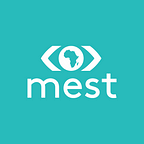Valuing Africa’s startups is going in the right direction, up!
NB: Use this to your advantage
Taking into account the unique economic and cultural dynamics of the African continent, the valuation of our most exciting startups bears no proven formula. On both sides of the table, entrepreneurs and investors alike deliberate over multiple factors that affect this process, each trying to inch closer to an area of both comfort and right-minded business sense. Though this seems daunting, the increase in large, tech-focused investment deals in Africa only adds more proof to the potential of this sizeable market.
African startups aren’t awarded the luxury of having three years to turn profits and ROI, with investors asking to see this proof within the first year, often unrealistically. In the same vein, a lack of data on startup exits across Africa takes a sizeable chunk off any valuation due to the inherent risk against an international comparable. Access to data is a topic well documented on the continent, with huge gaps of analysis in the informal sector. This makes it difficult not only to value your own potential but sometimes the addressable market of the sector you’re entering.
Despite these factors, it is important for startups to see their valuation not only as a science (with all the right numbers) but also as an art that requires founders to go beyond the numbers, think outside the box, and bring on their negotiation skills.
The good news is that as global awareness of Africa’s tech potential grows and more high-profile deals and success stories emerge, the more comparable data we have at our disposal to base an appropriate valuation from. To support this, an aspect that we often see with investors, both Africa-based and international, is the importance of personal affiliation to a startup founder. The credentials, experience, knowledge, and passion of the founder can make or break an investor pitch, putting more importance on preparedness, communication skills, and presentation delivery.
It also holds true that aside from the financial aspects of valuing a startup, you shouldn’t lose sight of the value that comes with a robust collection of non-executive or advisory board members. Throughout MEST programs, we convene panels of experts across multiple sectors like finance, legal, communications, and branding to advise and guide startups at every stage of their journey. These experts are regularly asked to sit on the advisory panels of the startups they support, aiding their journey towards valuations, deals, and further success.
Coming back to the numbers, it is crucial to ensure you remain realistic. Throwing up a $2.5bn figure for projected revenue within the first year, gained from a huge addressable market — as plentiful as they are in Africa- will only turn an investor further away from trusting you with their cash.
Valuation using discounted cash flows is a sensible solution. That is, the current value of your business will be determined based on projected future cash flows adjusted for the time value of money. It goes without saying that for this, tangible reference to actual revenue and continued growth since launch will ensure any present valuation is realistic and convincing.
Whether valuing for your own internal projections, or preparation for investor funding rounds, there is an increase in the support, data, reference points, and general consensus on just how valuable our continent’s tech entrepreneurs are to the development of our communities. Use this as leverage to catalyze your growth.
